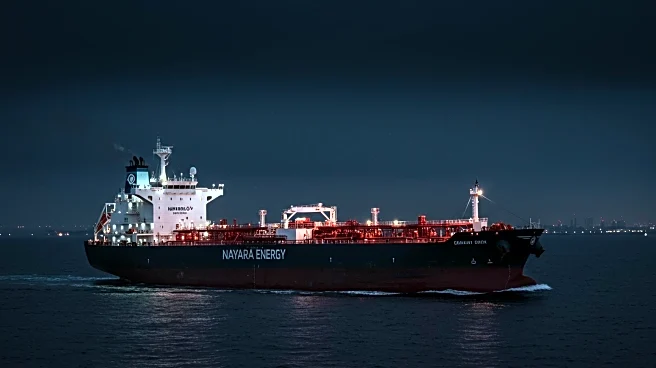What's Happening?
Nayara Energy, an Indian refiner backed by Russian interests, is navigating European Union sanctions by employing a 'dark fleet' to import oil and transport refined fuels. The sanctions, imposed in July, have disrupted Nayara's operations, leading to a reduction in crude processing at its Vadinar refinery in Gujarat. Despite these challenges, Nayara has managed to import several cargoes of Russian oil using vessels that are also under EU sanctions. The company, which controls a significant portion of India's refining capacity, is seeking government assistance to secure shipping solutions and maintain stable operations.
Why It's Important?
The situation highlights the complexities faced by global oil markets amid geopolitical tensions. Nayara's reliance on a dark fleet underscores the challenges of navigating international sanctions, which can impact supply chains and market dynamics. As India is a major oil importer, disruptions in Nayara's operations could affect domestic fuel availability and prices. Additionally, the involvement of Russian entities in facilitating Nayara's shipping needs reflects broader strategic alliances and economic dependencies that may influence international relations and trade policies.
What's Next?
Nayara Energy is likely to continue seeking government support to stabilize its operations and secure shipping solutions. The company's ability to maintain crude processing levels will be crucial for its domestic and export markets. Meanwhile, the broader implications of EU sanctions on Russian-backed entities may prompt further diplomatic negotiations or adjustments in trade practices. Stakeholders, including Indian policymakers and international trade partners, will be closely monitoring the situation to assess potential impacts on energy security and market stability.









